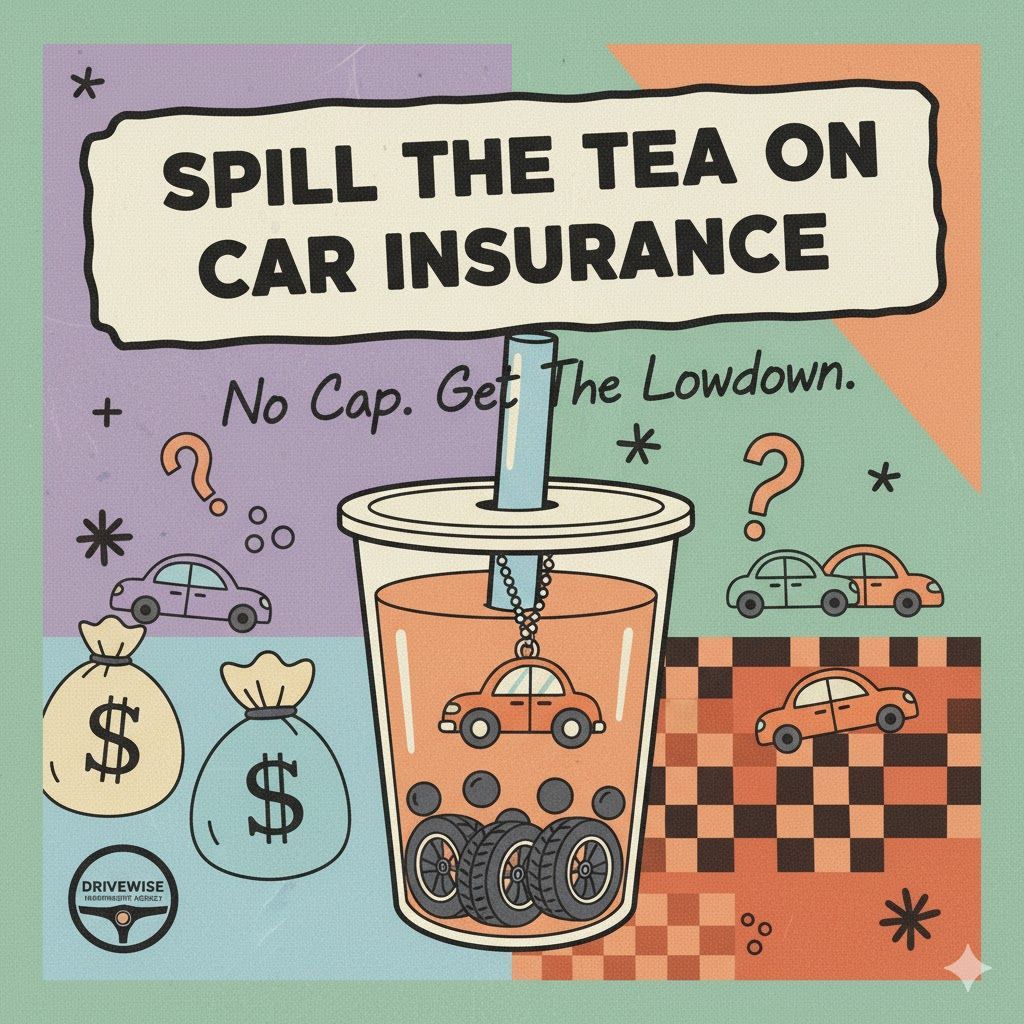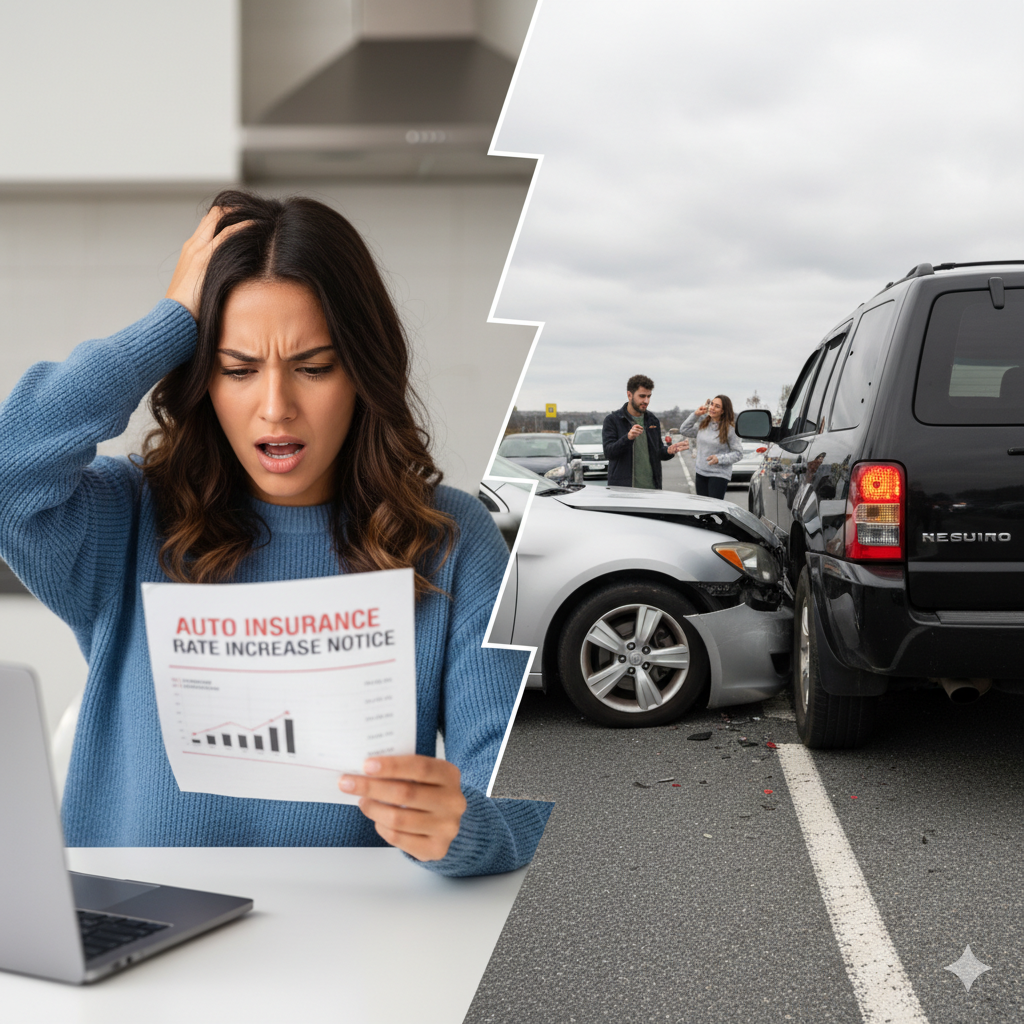Stay Focused Behind the Wheel: A Reminder During Distracted Driving Awareness Month
Doug Stockman • October 4, 2023
In my role as an insurance agent, I regularly follow the news for stories related to my field that may impact clients like you. Back in August, I came across a tragic story that helped inspire Missouri to become the 49th state to ban drivers from holding their phones or texting while behind the wheel (leaving Montana as the sole outlier).
This story has stuck with me, and it's why, this Distracted Driving Awareness Month, I'm reminding you about the importance of driving without distractions.
The Alarming Rise of Distracted Driving
Recent statistics paint a sobering picture of the state of distracted driving in our country:
1. In 2022, drivers interacted with their phones on nearly 58% of trips, up from 54% in 2020. This sharp increase is deeply concerning and underscores the urgency of addressing this issue.
2. Although 94% of teens know the dangers of texting and driving, a troubling 35% admit to doing it. This startling statistic highlights the need for continued education and awareness among younger drivers.
3. Approximately 9% of all vehicle fatalities are linked to distracted driving. This means that thousands of lives are tragically cut short every year due to a momentary lapse in focus behind the wheel.
4. About 3,000 people die each year due to distracted driving. These are not just statistics; they represent mothers, fathers, sons, daughters, friends, and loved ones who are dearly missed.
Taking Action for a Safer Future
Now that we are aware of these alarming statistics, it's crucial that we take action to combat distracted driving. Your safety, the safety of your loved ones, and the well-being of our communities depend on it.
During this Distracted Driving Awareness Month, I urge you to revisit these statistics with your loved ones and have an open and honest conversation about the risks associated with distracted driving. Here are a few steps you can take to drive safely without distractions:
1. Put your phone away:
Keep your phone out of reach while driving. Consider using apps that block incoming messages and calls while your vehicle is in motion.
2. Plan ahead:
Set your GPS, adjust your music, and attend to any other necessary tasks before you start driving.
3. Be a responsible passenger:
If you're riding with someone who's driving distracted, speak up and encourage them to focus on the road.
4. Lead by example:
Show your commitment to safe driving by being a responsible driver yourself. Your actions can influence others to make safer choices.
5. Educate others:
Share this information and resources like this website and short video
with friends and family. Knowledge is a powerful tool in the fight against distracted driving.
Let's work together to reduce the heartbreaking statistics associated with distracted driving. By making a conscious effort to stay focused behind the wheel, we can make our roads safer for everyone.
If you have any questions or concerns about your insurance coverage related to distracted driving incidents, please don't hesitate to contact me. Your safety and peace of mind are my top priorities.
Thank you for taking the time to read this important message, and please remember to drive safely and without distractions.

The TL;DR (No Cap) Car insurance isn't some cheugy boomer paperwork. It’s about protecting your present and future bag. It’s what turns a life-altering financial disaster into a manageable Tuesday. Think of your insurance agent as your hype squad. We're here to explain the tea on deductibles, coverage limits, and make sure you're not paying for a policy that’s mid. The Bottom Line: Don’t simp for a cheaper premium that leaves you exposed. Get the right coverage. Secure your whip. Protect your peace. That's true main character energy. The Tea on Car Insurance: Why Do I Need to Drop Stacks on Something I(hopefully) Won't Even Use? Hey besties. Let's be real. Nobody is stoked about spending their hard-earned cash on car insurance. It feels like one of those things your parents—bless their hearts, they're kind of cheugy—keep telling you is "essential." You’re probably thinking, "Big Yikes, is this even a vibe? Why do I need to drop stacks on something I (hopefully) won't even use?" We get it. You're trying to save your bag, maybe finally afford that drip, or just keep that avocado toast habit alive. But hear us out, because don't simp for cheaper premium, because life without car insurance is seriously not the vibe, and honestly? That’s some major delulu behavior. 🚗 Scenario 1 : You're on Vibe Check Street and Things Go Sideways Picture this: You’re cruising, the playlist is absolutely slapping, and you're feeling like the main character. Then, BAM! A chaotic squirrel runs into the road, you swerve, and now your bumper is looking kinda… mid (or worse, completely busted). Without car insurance, that little "oopsie" instantly becomes a gigantic L. You are now personally funding the body shop, which is an express ticket to Brooksville (population: you). If you have a loan, your lender is going to be shook—and not in a good way. The Insurance Slay: If you have comprehensive and collision coverage, you can low-key just file a claim. You pay your deductible (which is usually much smaller than a whole repair bill), and your insurance company steps in and says, "Bet." Suddenly, that Big Yikes situation is just a minor inconvenience, not a financial dumpster fire. You're winning, which is a big fat W. 💥 Scenario 2 : It Wasn’t You, It Was Karen Okay, so let’s say you are driving perfectly. You have that rizz behind the wheel. But then, some absolute NPC runs a stop sign and totals your whip. What about your car? If the other person has terrible insurance (or, yikes, none), and you only have basic liability, your car is toast, or is it? Would you be getting ghosted by your savings account? The Insurance Slay: If you went for Uninsured(required)/Underinsured Motorist Coverage (which is a total flex), your policy steps up to pay for your stuff (up to the limits) when the other driver is broke or capping about their coverage. You get your ride fixed, you avoid being salty, and you keep the good vibes rolling. What if it is your fault? This is where your Liability Coverage is the real MVP. Legally, you need this at a bare minimum. It means if you are at fault for an accident, your insurance pays for the other person's damages (car repairs, medical bills, etc., up to the policy limits) so that they don't drag you in court and take your house money. Do you have the right limits? Ready to stop being delulu and get a quote that actually slaps? Hit us up. We'll make it quick, easy, and not at all cheugy. Bet! "Yo, need to scoop a quote for car insurance. What's the tea on the cheapest rates for my whip?" Our clients live in Spartanburg, Boiling Springs, Inman, Duncan, Roebuck, Moore, Lyman and the general upstate.

Ugh, My Rate Went Up for a Not-at-Fault Accident? It's the ultimate insurance head-scratcher. You're driving along, minding your own business, and then BAM! Some other driver turns your day into a metal-crumpled mess. But wait, it's not your fault! The police report says so, the other driver's insurance company agrees, and you're feeling pretty good about the whole thing. You and the other driver are not hurt and now your car is fixed. Then you get your renewal notice. Your heart sinks. Your insurance rate has gone up. But…why? Didn't we just establish that you were the innocent bystander in this whole debacle? It's a frustrating, perplexing situation that feels about as fair as getting a parking ticket for a car you don't even own. At Select Source Insurance, we hear this question a lot. We get it, it's maddening. So let's try to demystify this insurance riddle together, one slightly-less-maddening explanation at a time. The Crystal Ball of Risk Insurance companies are essentially professional fortune-tellers. They use all sorts of data to predict who is most likely to file a claim in the future. The "riskier" you appear, the more you're likely to pay for insurance. A not-at-fault accident, while not your fault in the traditional sense, can still be a blip on their risk radar. Here's what they're seeing: You're on the road more. If you're involved in an accident, even if it's not your fault, it indicates you're spending time on the road where these things happen. The more you drive, the higher the chance of being in an accident, even if you are the world's most defensive driver. Driving Habits: Even if you're not at fault, an accident can be a sign of unsafe driving habits. Consider this common scenario: you're following a car too closely, and they suddenly hit their brakes. You manage to stop in time, but the car behind you doesn't, resulting in a rear-end collision. While you may not be considered at fault, your decision to tailgate created a domino effect, leading to the crash. This is just one of many examples of how a lack of attention to safe driving practices can contribute to an accident. Stand Alone: This one incident, in and of by itself, may not impact the rate that much, but if another incident similar or different it will have more impact on the rate. The insurance company starts to see a pattern. The "Luck" Factor. Some insurance companies use a more statistical approach. They see that you've been in an accident, and their data might show that people who have been involved in one accident, even a not-at-fault one, are slightly more likely to be involved in another. It's not a judgment on your driving skills, but a cold, hard, and somewhat comical statistical reality. The Cost of Doing Business. Even in a not-at-fault claim, your insurance company might still have to pay for things. They might cover the rental car while your vehicle is being repaired or towing until they're reimbursed by the other driver's insurance. These costs, however small, are still part of a claim, and claims affect rates. The Solution: We Can Help! So, what's an innocent driver to do? The good news is, you're not stuck. This is precisely where being an independent insurance agency like Select Source Insurance makes all the difference. We aren't tied to a single insurance company. We work with a whole bunch of them! If one company decides to punish you for being a victim of circumstance, we can shop around for you. We can find a different insurance company that has a more favorable view of not-at-fault accidents. Think of us as your personal insurance matchmaker. We know which companies are more forgiving and which ones are more likely to raise rates for even the smallest claim. Our job is to find you a policy that offers great coverage without making you pay for someone else's mistake. The Bottom Line Yes, it's a bit ridiculous that your rates can go up for a not-at-fault accident. It's one of those bizarre insurance quirks that makes you want to shake your fist at the sky. But it's not a dead end. Give us a call. We'll do the shopping and negotiating for you. Let us find you a rate that reflects your driving, not someone else's.

Getting your Spartanburg vehicle tax refund: A guide from Select Source Insurance. Did you sell, trade, or wreck (as in a total loss) your vehicle? Did your vehicle get repossessed, or have you moved out of state? You may be eligible for a refund! We understand that navigating property taxes can be confusing, especially when life events like selling or wrecking a car come into play. Many Spartanburg residents don't realize they might be eligible for a refund on their vehicle property taxes in such situations. At Select Source Insurance, we're here to help clarify the process and ensure you get the refund you deserve. When are you eligible for a refund? Spartanburg County offers vehicle property tax refunds in several instances: Selling, Trading, Wrecking, or Repossessing a Vehicle Returning a Leased Vehicle Moving Out of State before your vehicle tag decal expires Transferring a tag does to another vehicle does not qualify What documentation do you need? The required documentation varies depending on why you are seeking a refund. The Spartanburg County Auditor's Office may require: a Bill of Sale Trade-in agreement A statement from your insurance or repossession company Documentation from the leasing company Your new out-of-state registration. How to apply for your refund? You can apply: in person by email: countyauditor@spartanburgcounty.org. by mail: to the Spartanburg County Auditor's office at 366 N. Church Street, Suite 200, Spartanburg, SC 29303 We're here to help Understanding vehicle property tax refunds can be complex. As your local independent insurance agency, we are here to assist with your car insurance needs and related questions. Here is a link: Spartanburg County Tax Refunds Also, did you know you can turn a vehicle tag in online? Yes, it is called a virtual tag turn in or decommissioning a tag. Here is the link: Decommission a Tag If you have questions about eligibility or need help with documentation, contact Spartanburg County. Informational purposes only. Check with the appropriate government entity for actual process.
